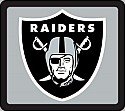
It occurred one-hundred and forty-six years ago today. Confederate forces led by General Joesph E. Johnston & General Pierre Gustave Toutant de Beauregard defeated the Federal army under General Irwin McDowell at the battle of First Bull Run. Union troops seemed to have victory within their grasp but General Thomas J. Jackson and his brigade held off Union assaults. Soon Confederate reinforcements began to arrive and the tide of battle quickly turned against the Confederates. Union casualties were 460 killed, 1,124 wounded, and 1,312 missing or captured; Confederate casualties were 387 killed, 1,582 wounded, and 13 missing.The battle itself had several consequences. First, the Union army was routed and many soldiers didn't stop running until they reached Washington D.C. The overconfidence of both sides prior to the battle now came to haunt its losers. "The larger part of the men" wrote General McDowell "are a confused mob, entirely demoralized." During the Union retreat, the men were hammered by rainfall which didn't help their already sad state. Private Elisha Hunt Rhodes of the 2nd Rhode Island Volunteers wrote "Many times I sat in the mud determined to go no further." Lincoln's cabinet also felt the strain of losing the battle at Bull Run. Secretary Seward wrote to Minister Adams in London: "Our Army of the Potomac, on Sunday last, met a reverse equally severe and unexpected." The low morale of the Union army would go unrelieved until General George B. McClellan took charge and trained them into a solid fighting force. After reading about the loss in the newspapers, the people of the North knew that the war was going to be a long and desperate struggle.On the Confederate side things were jubilant but their mostly untrained forces were unable to pursue their advantage. This did not stop the men in gray and their leaders from celebrating. President Jefferson Davis wired Richmond "Our forces have won a glorious victory." Even those who had not taken part in the battle were brimming with confidence. Robert E. Lee wrote to a friend "as long as there is one horse that can carry its rider & one arm to wield a sword...I prefer annihilation to submission." However, southern pride was offset in Richmond when the first wagons bearing the wounded arrived. As the maimed and the dead were brought back to the city and residents remember the horrors of the suffering and degradation. The Civil War, after a non-bloody beginning at Fort Sumter had now official begun.Before closing I should also note a few other items about First Bull Run that are significant:
1. William T. Sherman, a colonel at the time led a brigade at the battle. He would make a name for himself in the Western Theatre of the war. Just ask old timers in Atlanta about him!
2. Major Sullivan Ballou who you may remember from the Ken Burns film The Civil War, was killed in action at First Bull Run. He wrote the most famous love letter in American History.
3. The battle marked the first and not the last time Confederate officers feuded. Generals Johnston and Beauregard would quarrel over responsibility for the Confederate victory.
4. The battle is the origin of Thomas Jacksons nickname "Stonewall" and the 1st brigade of the Southern forces would also receive the same nickname for their staunch defense. The Stonewall Brigade is very historical because some of these men would serve the entire war.
5. The first of many brigade commanders for both sides would die as a result of the battle. Confederate Colonel Francis S. Bartow was killed in action and the man who gave Jackson his nickname, General Bernard Bee would be mortally wounded.
Links for pictures of the Bull Run Battlefield:First Battle of Bull Run (Manassas) photos
Civilwarhome.com has more information about the battle
Source:Catton, Bruce. The Coming Fury. Garden City, N.Y.: Doubleday, 1961.
Original copy of the Map is located here
1. William T. Sherman, a colonel at the time led a brigade at the battle. He would make a name for himself in the Western Theatre of the war. Just ask old timers in Atlanta about him!
2. Major Sullivan Ballou who you may remember from the Ken Burns film The Civil War, was killed in action at First Bull Run. He wrote the most famous love letter in American History.
3. The battle marked the first and not the last time Confederate officers feuded. Generals Johnston and Beauregard would quarrel over responsibility for the Confederate victory.
4. The battle is the origin of Thomas Jacksons nickname "Stonewall" and the 1st brigade of the Southern forces would also receive the same nickname for their staunch defense. The Stonewall Brigade is very historical because some of these men would serve the entire war.
5. The first of many brigade commanders for both sides would die as a result of the battle. Confederate Colonel Francis S. Bartow was killed in action and the man who gave Jackson his nickname, General Bernard Bee would be mortally wounded.
Links for pictures of the Bull Run Battlefield:First Battle of Bull Run (Manassas) photos
Civilwarhome.com has more information about the battle
Source:Catton, Bruce. The Coming Fury. Garden City, N.Y.: Doubleday, 1961.
Original copy of the Map is located here





1 comment:
There is no other legend quite like the Confederate fighting man. He reached the end of his haunted road long ago. He fought for a star-crossed cause and in the end he was beaten, but as he carried his slashed red battle flag into the dusky twilight of the Lost Cause he marched straight into a legend that will live as long as the American people care to remember anything about the American past.
--Bruce Canton
Post a Comment